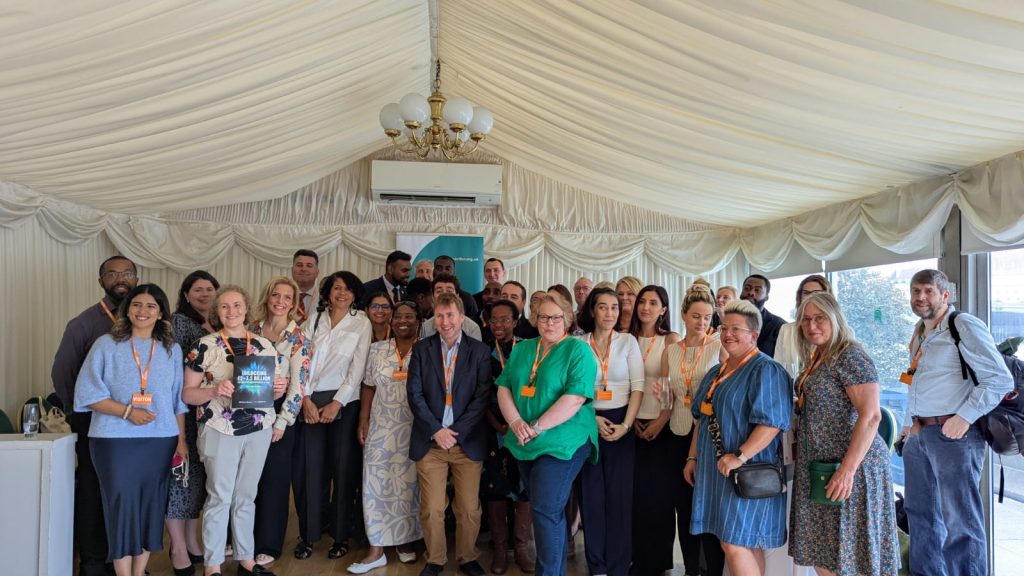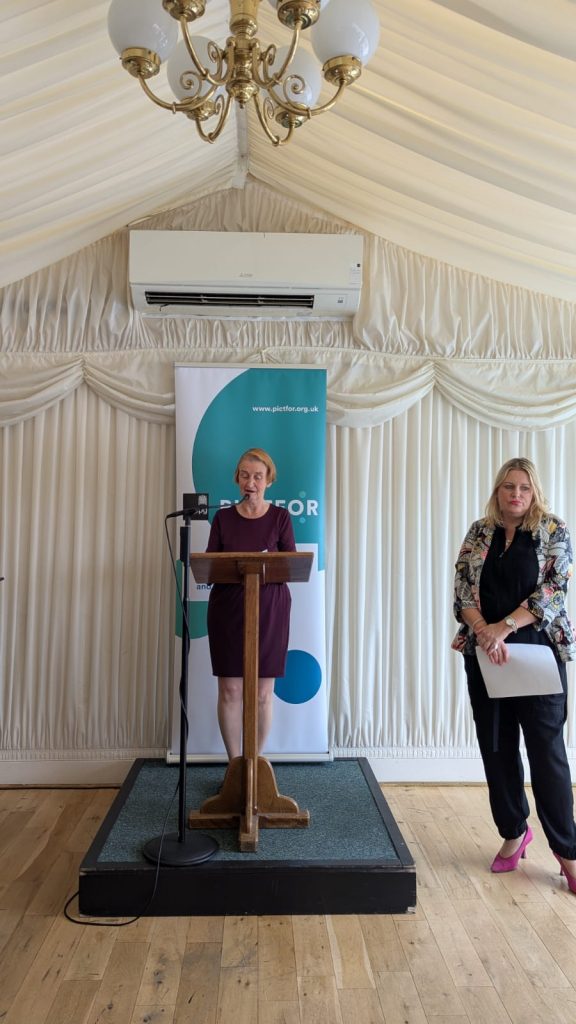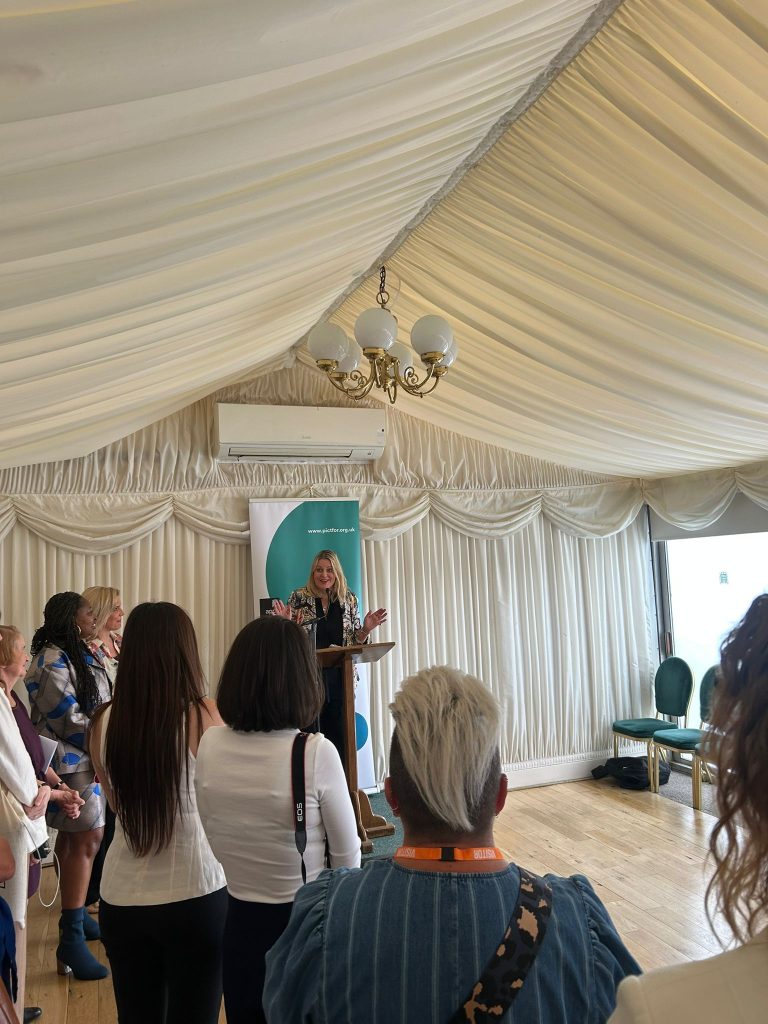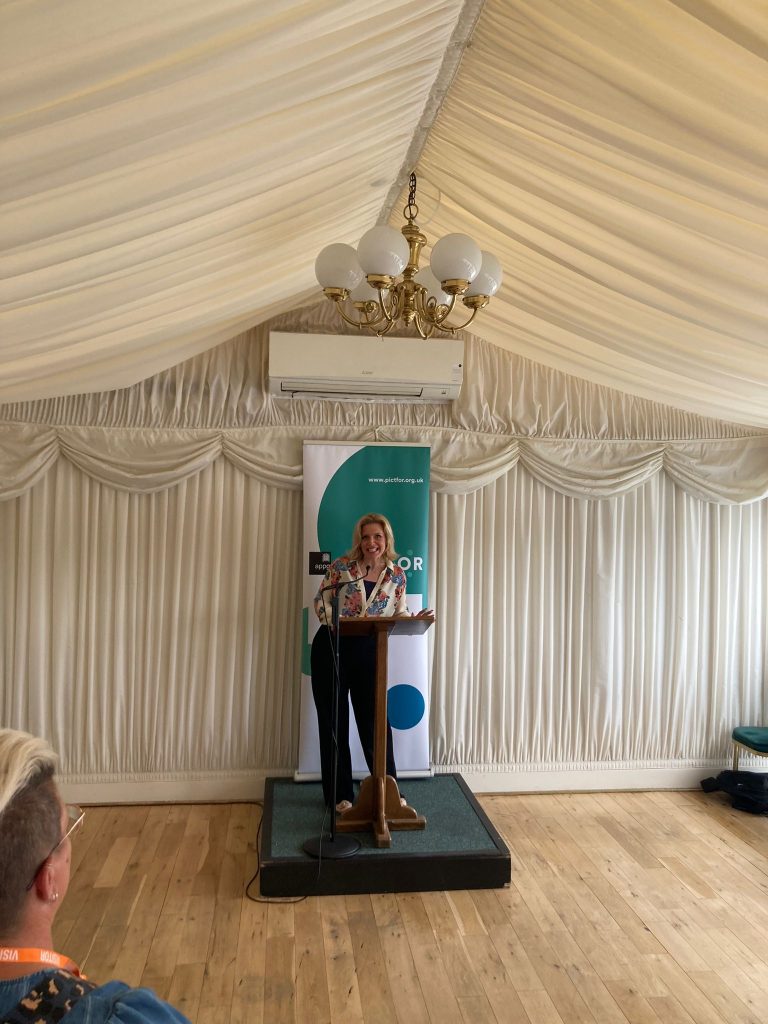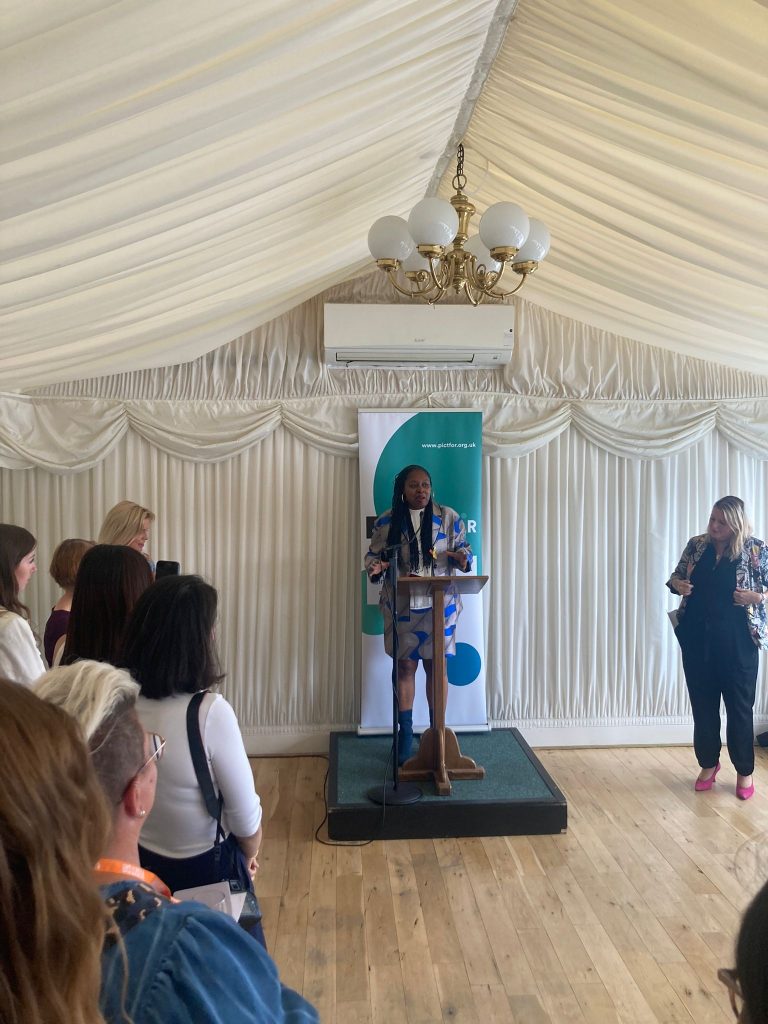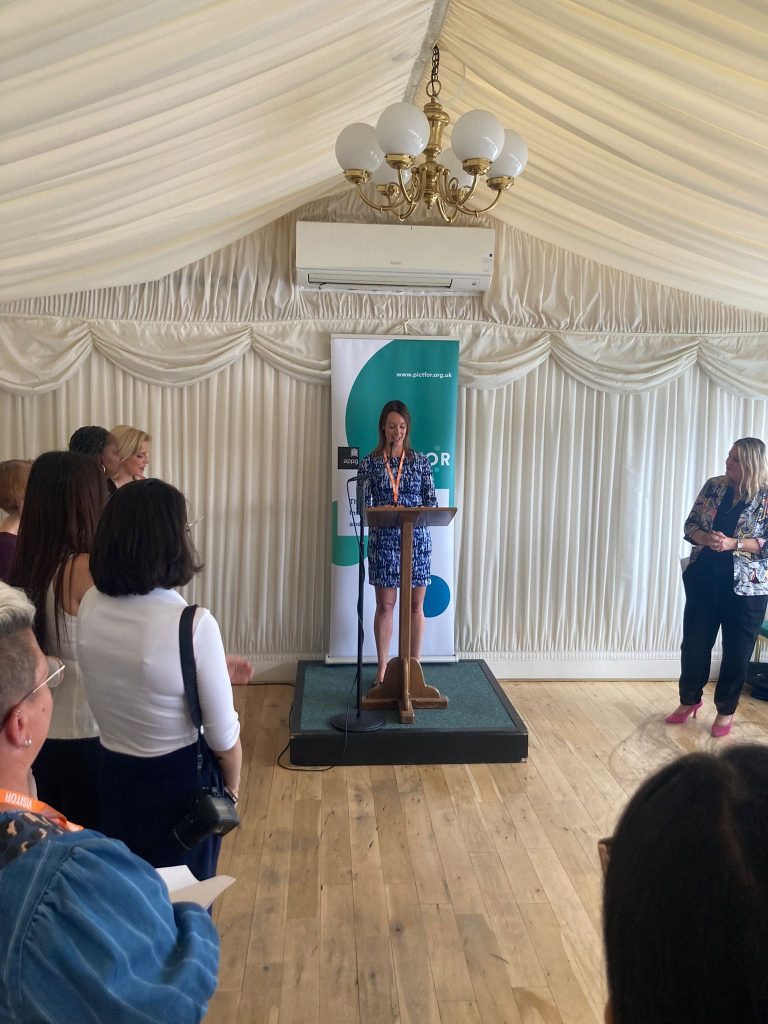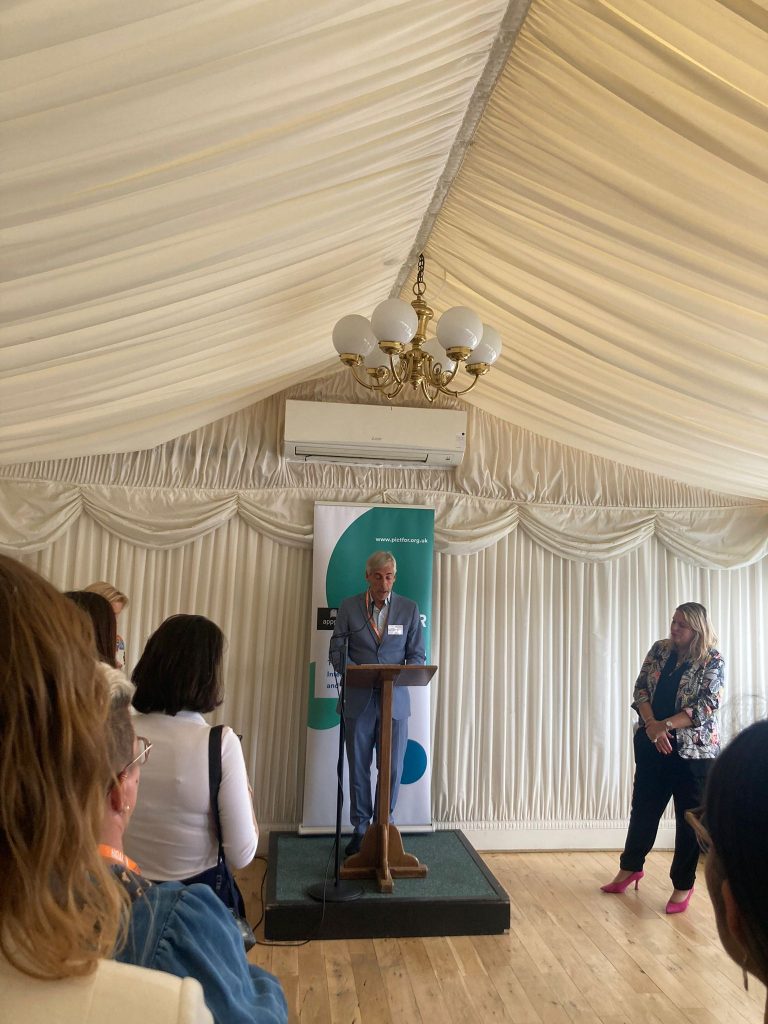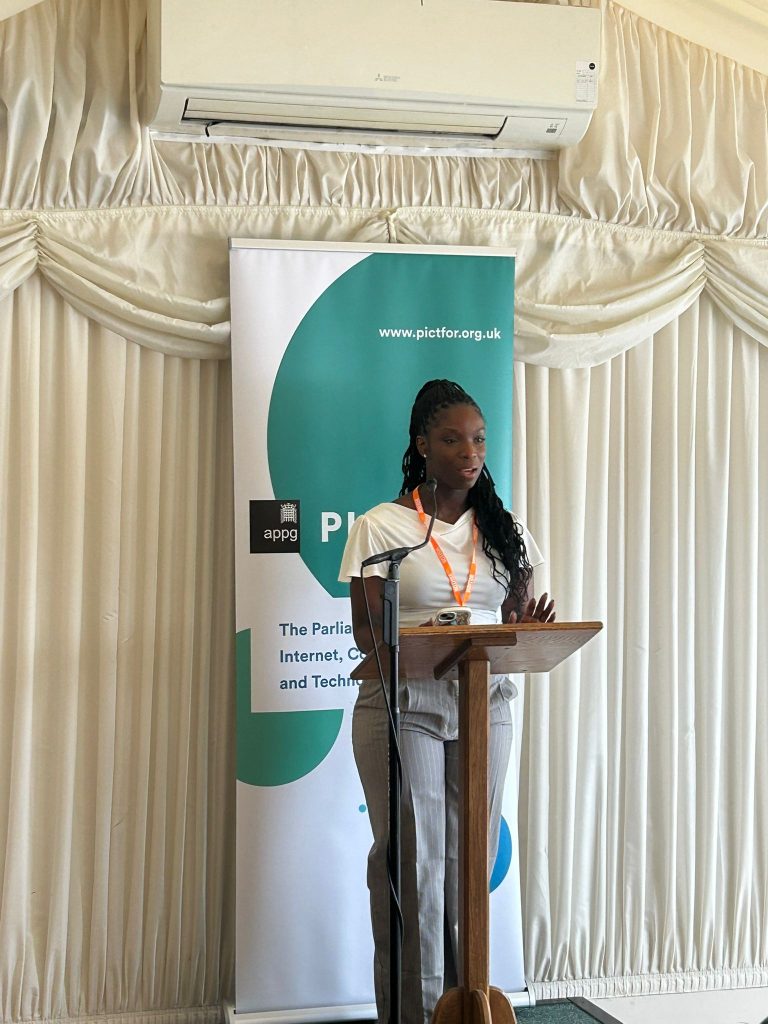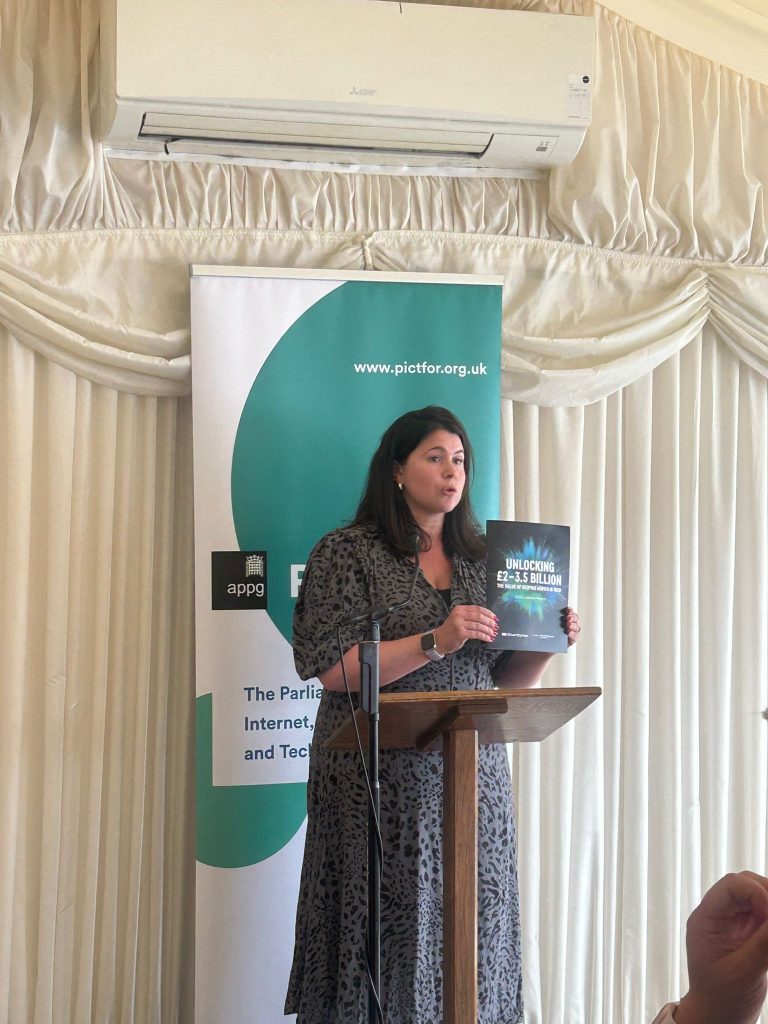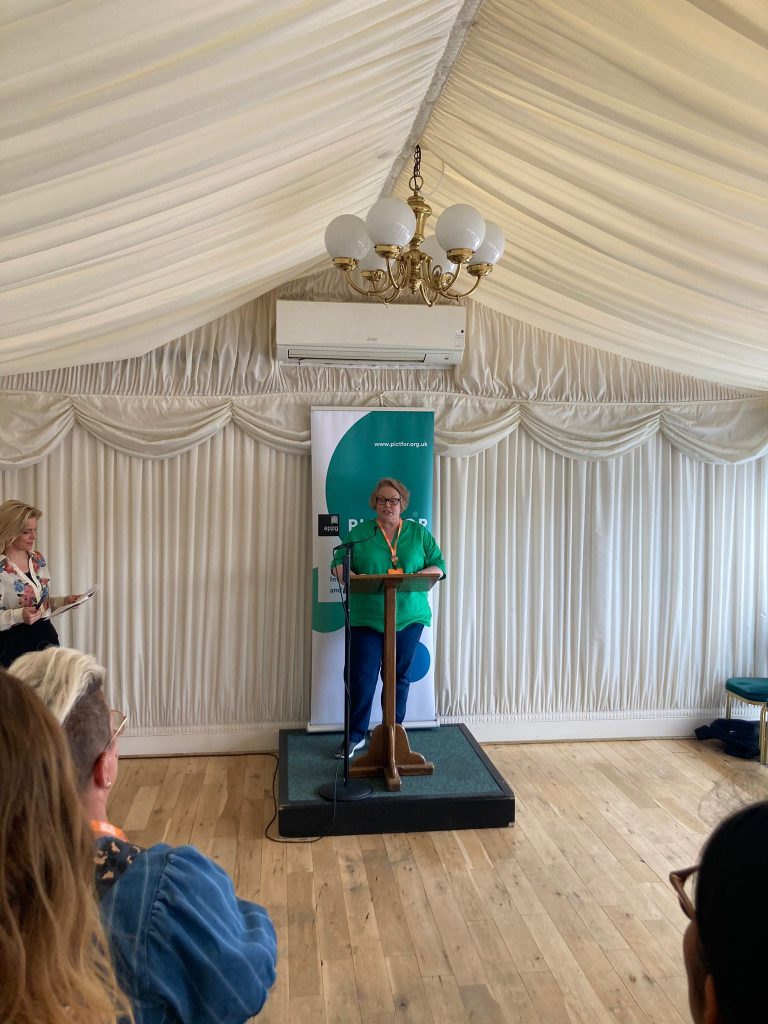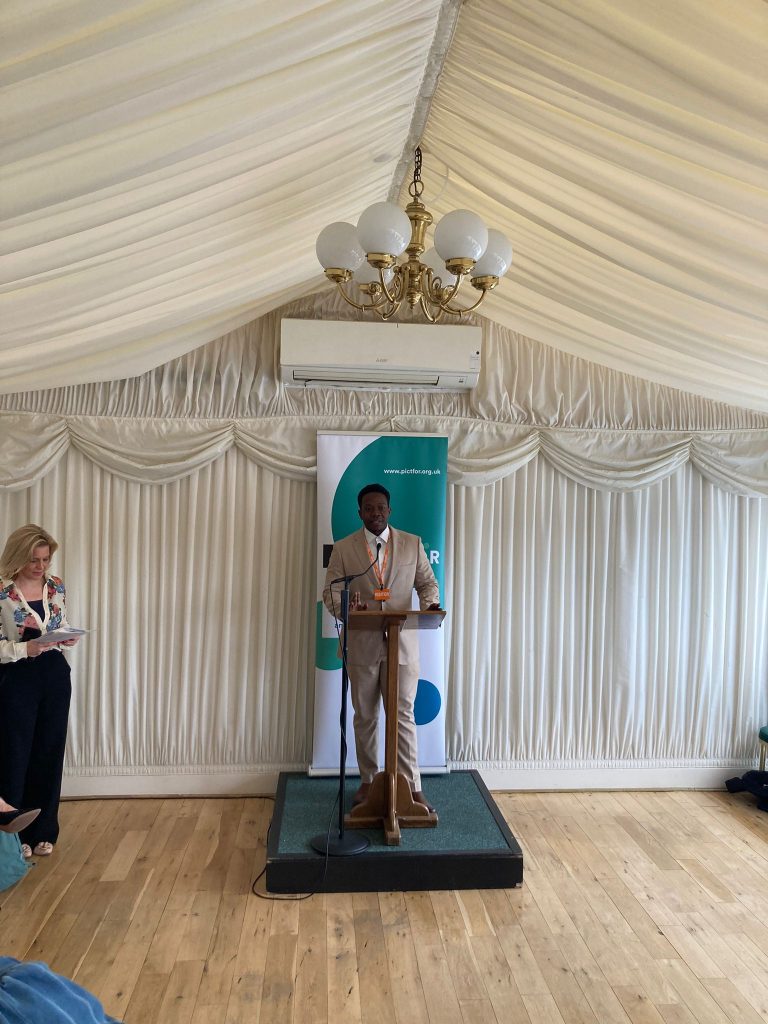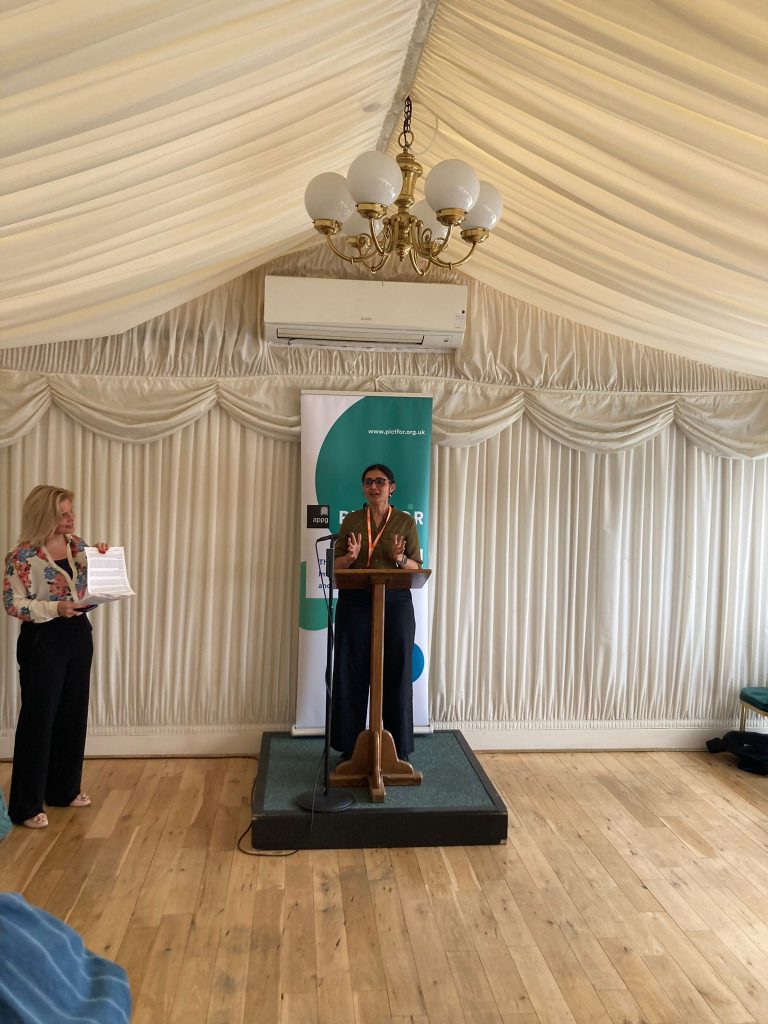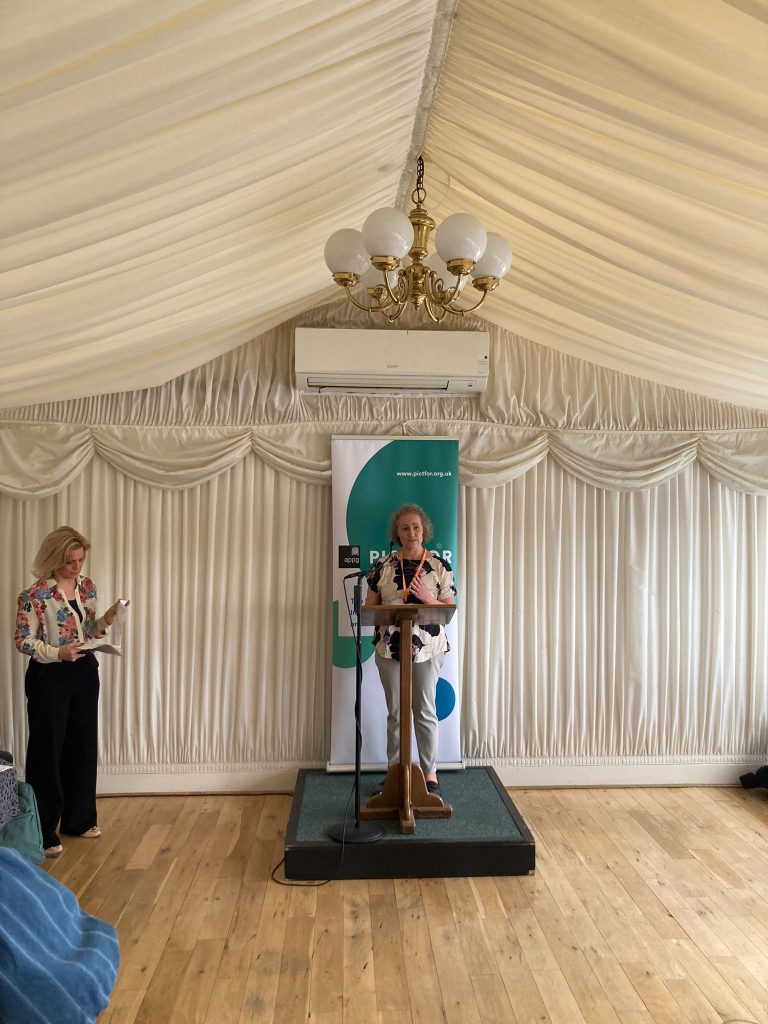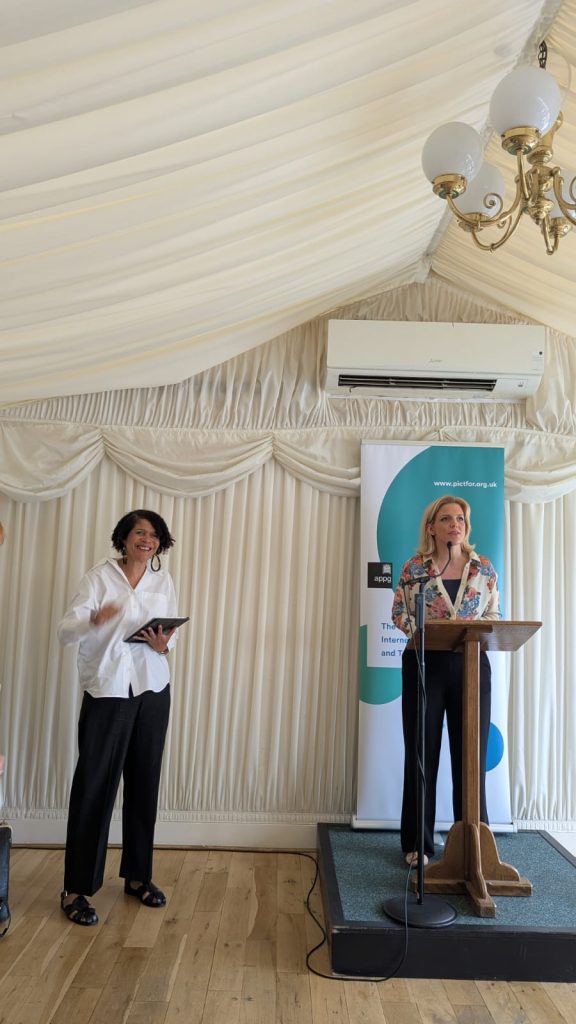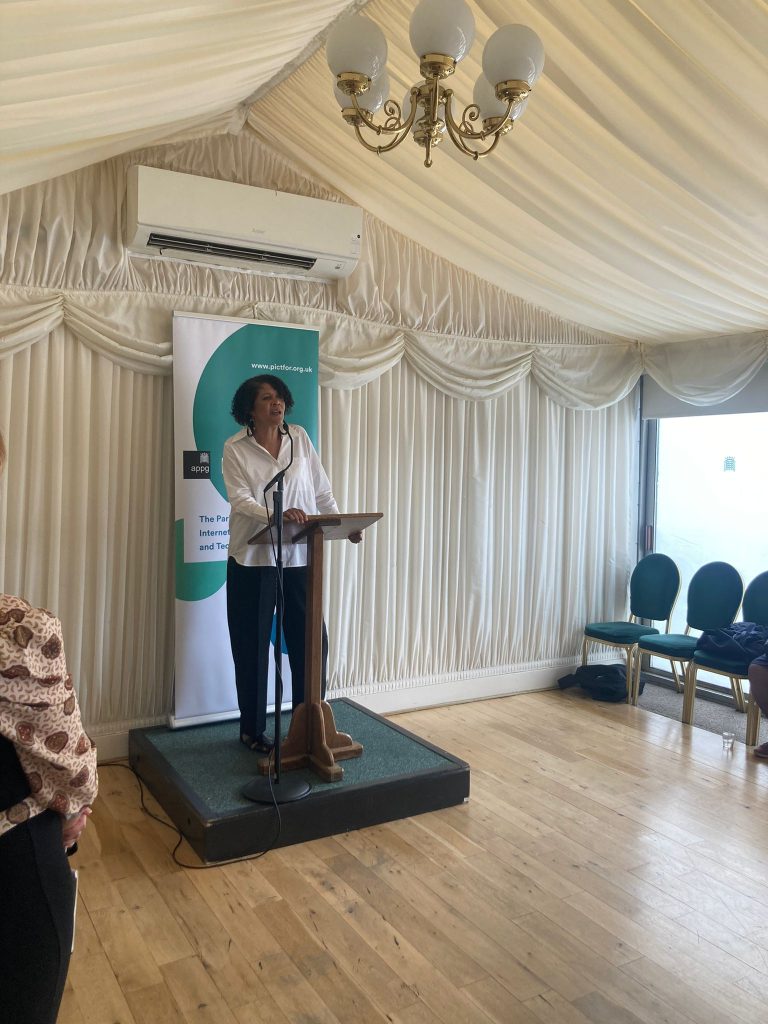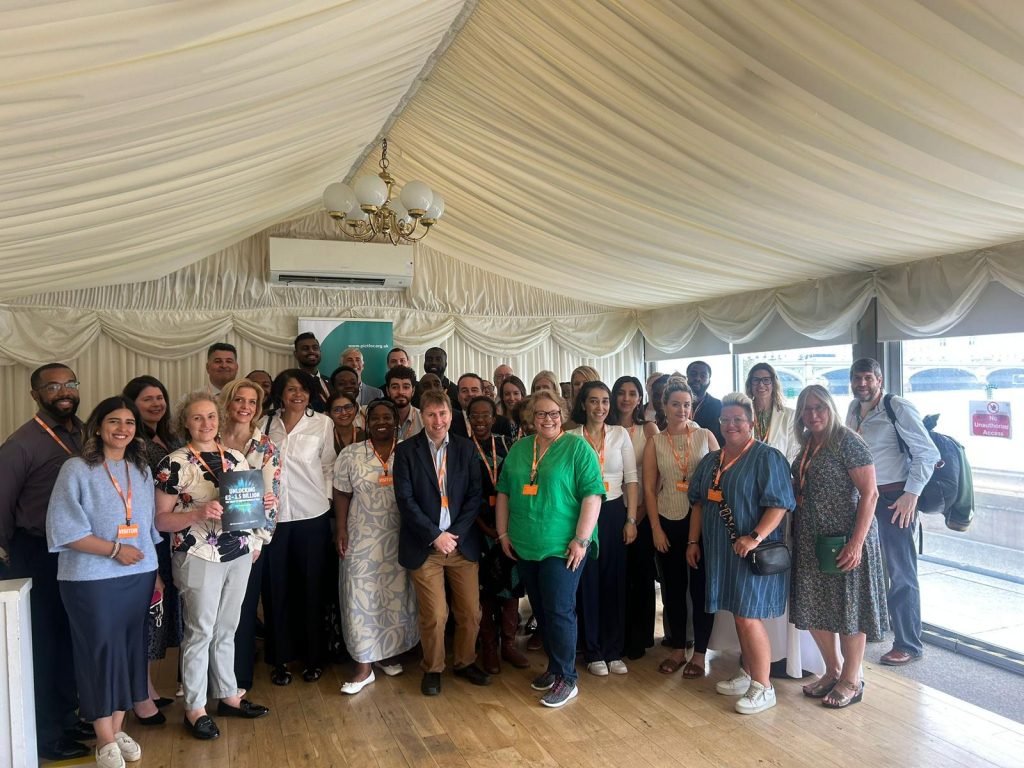Dawn Butler MP, member for Brent East, opened the rally portion of the event by noting her roots as a computer programmer. She declared the rally a defiant celebration of diversity and inclusion – emphasising that inclusive companies are more profitable and that tech risks replicating existing biases without representative teams.
Louise Speaight, Marketing Director at cyber and defence firm PentenAmio, spoke about the critical role of diversity in safeguarding national security and driving technological innovation. Having worked in male-dominated industries throughout her career, she described her move into defence and cyber as unplanned – but ultimately inspiring, due to the sector’s rapid transformation and geopolitical relevance. She noted that only 25% of the defence workforce is currently made up of women and highlighted the importance of creating environments where minority voices can thrive, not just survive. Louise advocated for flipping the DEI acronym – putting Equity and Inclusion first, to create the conditions where diversity naturally follows. She emphasised the need for leaders to model inclusive behaviours and actively challenge their own assumptions. She advocated for leadership accountability and continuous self-development to build inclusive, secure environments.
Russ Shaw, Founder, Tech London Advocates, warned of a global pullback on DEI, particularly in the US, but praised UK companies for forging their own paths. He highlighted research showing diverse teams outperform their peers by up to 36% in profitability. Diverse teams, he said, produce better ideas, design more inclusive products, and better reflect the societies they serve. He urged the government to embed DEI into programmes like the £187m Tech First reskilling initiative. Without this, he said, the UK risks leaving people behind as tech transforms the workforce.
Bianca Walker, Tech for Disabilities advocate, spoke about the importance of retaining neurodivergent individuals in tech. Reflecting on her own experience, she explained how neurodivergence is often linked to creativity and innovation – but too often unsupported in the workplace. She urged the industry to rethink hiring, leadership, and communication – citing examples such as flexible hours, quiet spaces, and inclusive communication styles as essential. Supporting neurodiverse talent, she said, unlocks not only innovation but also a more compassionate industry.
Karen Blake, Head of Strategy & Consulting at Powered by Diversity, presented findings from the Lovelace Report, co-authored with WeAreTechWomen and Oliver Wyman. The research shows up to 60,000 women leave UK tech roles annually, costing the economy £2-3.5 billion. Contrary to assumptions, only 3% cite childcare as their primary departure reason. Instead, structural workplace issues dominate: lack of career advancement opportunities (25%), insufficient recognition (17%), and inadequate pay (15%). A “leaky pipeline” that could impact national AI scaling goals by 2030. Women comprise 20% of the UK’s 2.1 million tech workforce, with 80% of surveyed women considering role changes. Blake recommended clear progression frameworks, equitable remuneration, and structured sponsorship programs as solutions. She concluded that incremental approaches may be insufficient to address the scale of talent loss affecting the sector’s growth and competitiveness.
Becky Lodge, Founder of Desk2Educate, shared her life story and career journey from working-class Leicester roots to leading an AI-driven edtech firm. She addressed barriers facing women especially neurodivergent and working-class women, in accessing funding, career paths, and social mobility in tech. She urged investment in overlooked talent, stating that economic growth and human dignity must go hand in hand.
Ricardo Mighty, Founder, Mighty Labs, shared his path into tech – sparked by a passion for dismantling and understanding how systems work – and stressed the importance of being evaluated by capability rather than appearance or background. He warned against recruitment processes that allow one individual’s unconscious bias to have too much influence. Greater team diversity, he said, leads to more inclusive products – and greater commercial success.
Tanvi Upadhyay, DEI Lead, TCS UK & Ireland, discussed her personal motivations for pursuing inclusive work and outlined TCS’s diversity model based on four pillars: representation, talent development, supportive culture, and equity for all. She underlined the need for businesses to reflect the diversity of their customers – adding that innovation in product and service creation is an outcome of diversity of thought and different perspectives.
Jo Stansfield, Founder, Inclusioneering, acknowledged the difficult year for DEI globally, including challenges within the UK. Despite recent setbacks, she expressed optimism, noting that the UK’s new Industrial Strategy could offer transformative opportunities if implemented inclusively. Drawing on her work with UKRI and the Transforming Foundation Industries programme, she illustrated how policy signals can influence entire sectors. She called on MPs to embed DEI in every layer of industrial strategy delivery, and urged business leaders to take bold, visible action.
Samantha Niblett MP closed the rally by thanking the speakers and attendees. She expressed pride in the Labour Government’s commitment to “opportunity for all” and cited the historic levels of diversity within the current Parliament. She highlighted the importance of regional opportunity – particularly in her own constituency and the East Midlands – and praised initiatives like apprenticeships that widen access to careers in tech. She encouraged continued lobbying of MPs and policy makers to keep diversity high on the agenda.
